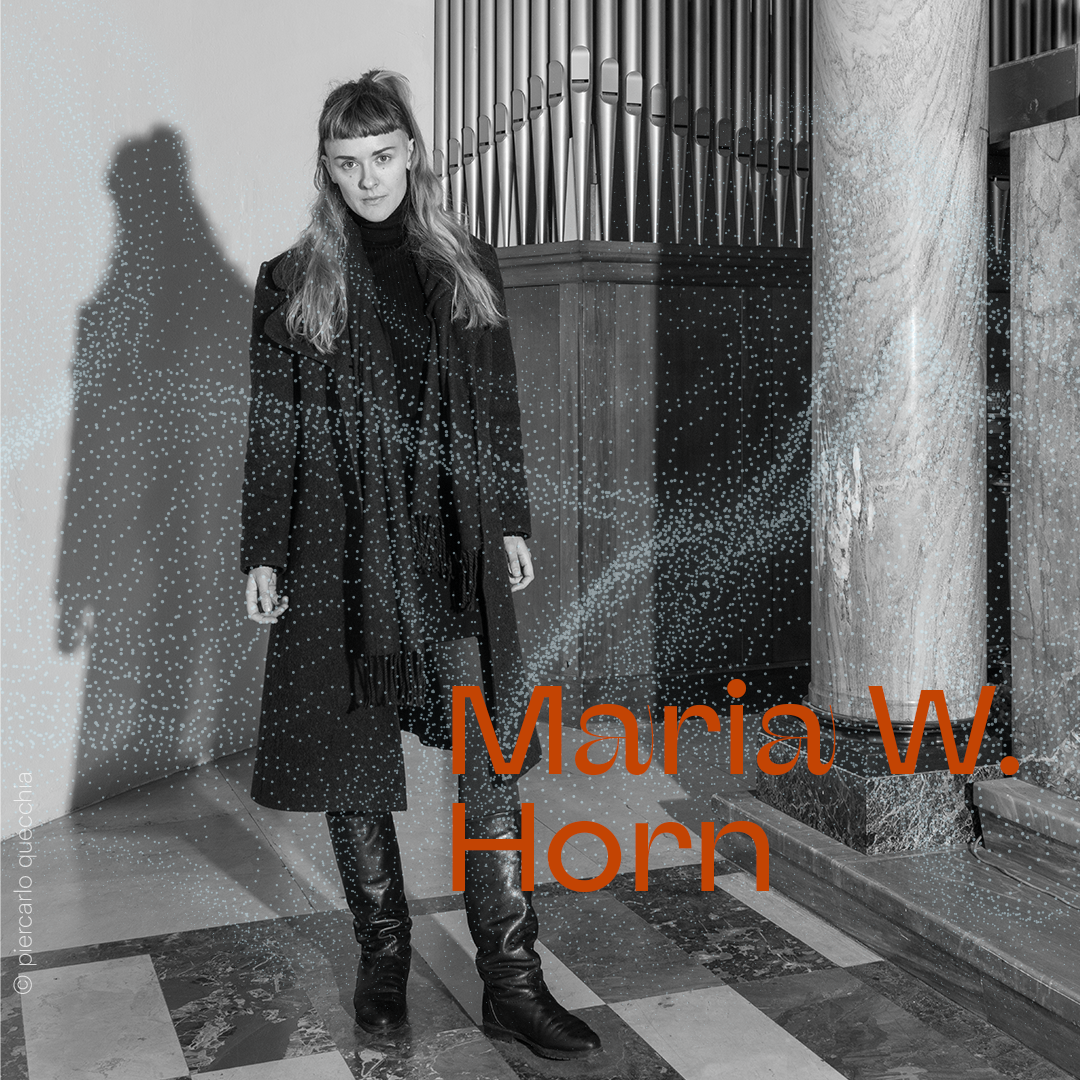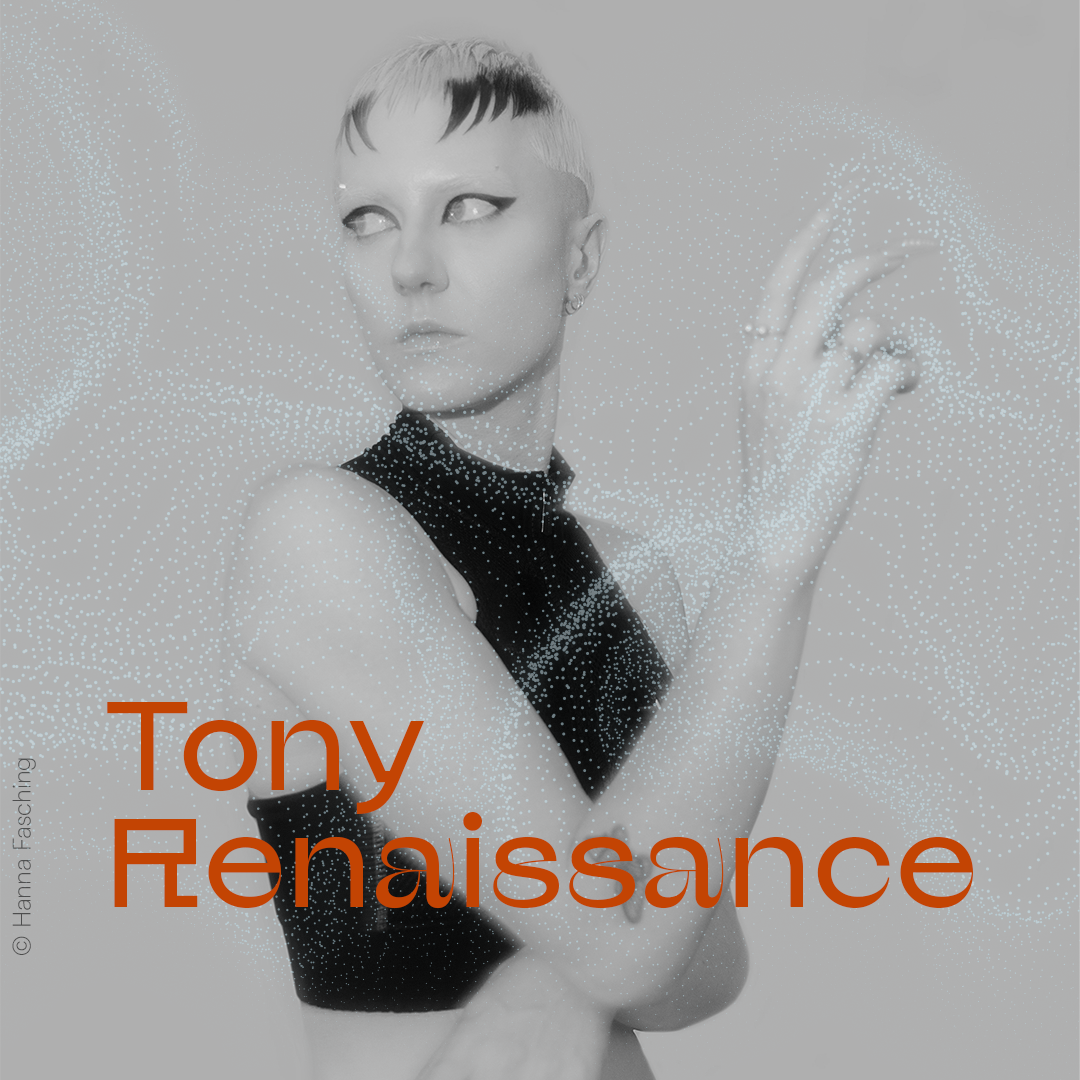Maria W. Horn (SE)
http://www.mariahorn.se
Maria W Horn is a composer hailing from the north of Sweden, based in Stockholm since 2011. Maria W Horn is interested in the manipulation of time and space through sonic extremes – oscillating between minimalist structures and piercing power electronics utilizing both digital and analog synthesis as well as acoustic instruments and audiovisual components.
Her work examines aspects of human perception – how audiovisuality and overload/loss of perceptual stimuli can conspire to transcend everyday life and invoke alternate mental states. She is a part of Sthlm Drone Society – an association working to promote slow and gradually evolving timbral music, and co-operates the label XKatedral.
Notable performances and festival apperances include MUTEK Mexico City, GRM-INA Paris, Insomnia Festival Tromsø, CTM Festival Berlin, Madeira DiG and Kiezsalon, Copenhagen’s Organ Sound Art Festival, LOST Festival Parma at Labirinto Della Masone (Ulver, Sunn O))) etc.), MUTEK Montreal, Counterpulse San Francisco, Euphonic Festival Barcelona, NODE Festival, Open Source Art Festival in Gdansk, Flussi Festival in Avellino, Tresor Berlin, DAVE Festival Dresden, Click Festival Helsingør and a permanent installation project at Luleå Biennial, one of the most ancient and prestigious culture institutions in Sweden, built inside the Vita Duvans panopticon prison.
After the 2021’s critically acclaimed apparitions at Luleå Biennial, Elevate Festival alongside names like Anna Von Hausswolff and Brian Eno, Rewire Festival presenting “Dies Irae”, Alter Festival in Aarhus, Alternativa Festival Prague, Saint Ghetto and Kilbi Festival in Switzerland, Maria started working on numerous releases for 2022 including the critically acclaimed “Funeral Folk” with violinist Sara Parkman, presented at Västerås Art Biennial in July 2022.
“Maria W Horn delivered MUTEK’s most dynamic performance, oscillating between thrilling noise and sub-bass violence, and more subtle vibrations—funereal organ work along the lines of Kali Malone or Ellen Arkbro—which easily bled into minimalist sine wave experiments.”
http://www.mariahorn.se
Maria W Horn is a composer hailing from the north of Sweden, based in Stockholm since 2011. Maria W Horn is interested in the manipulation of time and space through sonic extremes – oscillating between minimalist structures and piercing power electronics utilizing both digital and analog synthesis as well as acoustic instruments and audiovisual components.
Her work examines aspects of human perception – how audiovisuality and overload/loss of perceptual stimuli can conspire to transcend everyday life and invoke alternate mental states. She is a part of Sthlm Drone Society – an association working to promote slow and gradually evolving timbral music, and co-operates the label XKatedral.
Notable performances and festival apperances include MUTEK Mexico City, GRM-INA Paris, Insomnia Festival Tromsø, CTM Festival Berlin, Madeira DiG and Kiezsalon, Copenhagen’s Organ Sound Art Festival, LOST Festival Parma at Labirinto Della Masone (Ulver, Sunn O))) etc.), MUTEK Montreal, Counterpulse San Francisco, Euphonic Festival Barcelona, NODE Festival, Open Source Art Festival in Gdansk, Flussi Festival in Avellino, Tresor Berlin, DAVE Festival Dresden, Click Festival Helsingør and a permanent installation project at Luleå Biennial, one of the most ancient and prestigious culture institutions in Sweden, built inside the Vita Duvans panopticon prison.
After the 2021’s critically acclaimed apparitions at Luleå Biennial, Elevate Festival alongside names like Anna Von Hausswolff and Brian Eno, Rewire Festival presenting “Dies Irae”, Alter Festival in Aarhus, Alternativa Festival Prague, Saint Ghetto and Kilbi Festival in Switzerland, Maria started working on numerous releases for 2022 including the critically acclaimed “Funeral Folk” with violinist Sara Parkman, presented at Västerås Art Biennial in July 2022.
“Maria W Horn delivered MUTEK’s most dynamic performance, oscillating between thrilling noise and sub-bass violence, and more subtle vibrations—funereal organ work along the lines of Kali Malone or Ellen Arkbro—which easily bled into minimalist sine wave experiments.”



























